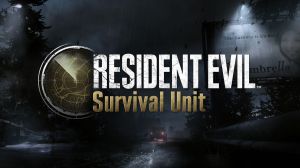A recent design change in Dungeons & Dragons had some unexpected consequences on a popular spell. The Wild Beyond the Witchlight introduced retooled statblocks for NPCs and spellcasting monsters, with a goal of making their damage output more in line with their Challenge Rating and to streamline the spellcasting process on Dungeon Masters in order to make those monsters a bit easier to use in combat. One notable change in these statblocks is that an NPC’s damage-dealing spells are sometimes replaced with an equivalent action. So, an evil sorcerer who has access to the spell fireball in older statblocks might now have a “Fiery Explosion” action that allows them to deal an equivalent amount of damage in combat.
Videos by ComicBook.com
Replacing with spells with actions also has a major effect on what players can do in combat. One of the more popular spells in Dungeons & Dragons is counterspell, a spell that allows a player (or NPC) to cancel out a spell another creature is trying to cast. The rules for counterspell specifically states that the spell can only be used when a player (or NPC) sees a creature within 60 feet of them casting a spell. Many of the actions included in the NPC statblocks seen in The Wild Beyond the Witchlight are not described as spells, which means they aren’t affected by a counterspell. This also impacts players who chose the “Mage Slayer” feat, as NPCs are a lot more capable of attacking characters up close than they were before.
Going back to the example in the first paragraph, a Level 5 PC could easily shut down that evil sorcerer trying to fireball his party, provided that the sorcerer was within range and the PC was ready to burn a 3rd level spell slot. However, they wouldn’t be able to stop a “Fiery Explosion” action, as the description for that action does not describe it as a spell.
As a Dungeon Master, I personally think this is a positive change. Spellcasting NPCs and monsters were too easily stymied by counterspell, especially if a party had two or more characters who knew the spell. There were ways around it, but they always felt rather contrived or situational and relied on a metagame knowledge of what spells your players had equipped. Additionally, spellcasting NPCs still have a spell list that are subject to counterspell, so a player can still negate those equally disruptive utility spells. Spellcasters are now much more of a threat than they were before and counterspell falls in line with its intended utility both in and out of combat.
Let us know what you think about these changes in the comment section or find me on Twitter at @CHofferCBus to chat all things D&D!









